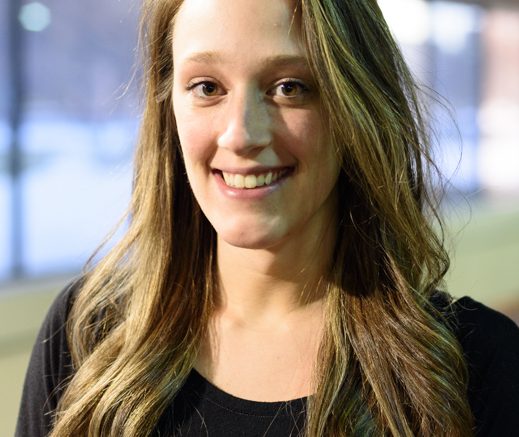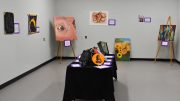The University of Manitoba Students’ Union (UMSU) is leading into the February reading week break by hosting Mental Health Awareness Week.
Several activities have been planned for this week aimed at both arming students with the right information about mental health and breaking down the stigma facing people living with mental health diseases.
The week-long event kicked off Monday with a self-love photo booth from Active Minds and art therapy sessions. The Graduate Students’ Association lounge was also transformed into a relaxation room, an initiative of one of UMSU’s partners, Healthy U.
Other activities scheduled for the week include pet therapy sessions, further art therapy sessions, and a social media contest where students can post a picture of themselves taking part in stress-relieving activities.
UMSU vice-president advocacy Dara Hallock stressed the need for increased mental health awareness on campus, while also encouraging students to pay attention to their own health and seek help when the need arises.
“There is stigma that surrounds those who face mental illness throughout their lives but what many people may not recognize is that although one in five Canadians live with mental illness, five of five of us have mental health, and we need to take measures to maintain our mental health,” she said.
“It is important – especially as students who face many responsibilities and stressors – to take time to check in with ourselves and reach out for help if we are having a tough time emotionally or physically.”
According to a survey of more than 43,000 Canadian post-secondary students released by the Canadian Association of College and University Student Services in the spring of 2016, 44 per cent of students interviewed indicated that they felt so depressed it was difficult to function at one point over the last 12 months. More than 64 per cent reported suffering from overwhelming anxiety and two per cent said they have attempted suicide in the past year.
Hallock said there is a connection between the 2017 February reading week and the preceding Mental Health Awareness Week, as the two events encourage students to take a break from academic activities to focus on managing the stress of the semester and increasing their productivity.
“Reading week has historically been looked at as a chance for students to take a break from the stress of university and studying to help them catch up on some work, but also with themselves and their own lives,” she said.
“We are hoping to promote students to take some time on reading week to participate in healthy coping strategies for stress,” she added. “This can include getting outside and being active, reading a book, or simply watching some Netflix.”
According to David Ness, director of the U of M student counselling centre, events like UMSU’s awareness week foster connections among people in the community and can bring them closer to useful information that can help address their situations.
“Events like the one UMSU is planning […] help to encourage people to be open and connect with others and get support and to address their difficulties rather than just stay silent and maybe have their difficulties become worse,” he said.
Hallock said that the main message of the UMSU-led campaign is to bring mental illness out of the shadows.
“It’s all about breaking down the stigma that surrounds mental health and mental illness,” she said, “so that if we normalize talking about it, we can start supporting those that need it and help everyone live a healthier and well life.





